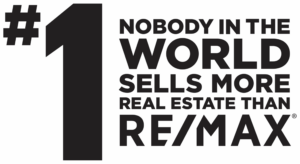In a competitive seller’s market, coming to the table with a cash offer — rather than traditional financing — can give you an advantage over other potential buyers. Home sales declined significantly in 2023 due to a combination of high mortgage rates, low inventory, and rising prices, but the demand for all-cash offers has persisted.
Many buyers who had enough savings to make a cash offer or could leverage their equity took that route to avoid paying more in interest over time. In the third quarter of 2023, all-cash deals made up nearly 37% of single-family home and condo sales, according to ATTOM, a real estate data company.
In 2024, the Fed is expected to cut interest rates three times, which could boost existing-home sales and ease affordability, according to the National Association of Realtors (NAR). That being said, the nationwide lack of inventory will likely cause the seller’s market to continue, making the all-cash offer a powerful leveraging tool.
Now that we’ve discussed the demand for cash offers in today’s real estate market, let’s get into the nitty-gritty of what they are, who makes them, and the benefits for buyers and sellers.
What is a cash offer, and how common are they?
A cash offer in real estate simply means that the buyer does not finance the purchase with a mortgage. Typically, the buyer has the full sale amount in their bank account and purchases the house with a check or wire transfer.
You might not think that many people have the liquid assets to purchase a home for cash. But all-cash sales are becoming increasingly popular, accounting for more than a third of single-family home and condo sales in Q3 2023, according to ATTOM. In 2023’s seller’s market, many buyers were able to win bids and save money on interest thanks to cash offers. Cash transactions often lead to a quicker closing process, which entices sellers to accept such bids.
If you’re considering buying or selling a home for cash, it’s important to keep in mind that a cash deal doesn’t necessarily negate closing costs. These costs are generally lower in a cash sale than in a traditional sale, but they still need to be covered.
Who makes cash offers in real estate?
The first is pretty simple: a traditional buyer with the liquid assets to pay cash. These are individuals or families who are purchasing a house or condominium for their living space. A traditional buyer might have this cash ready for a home purchase if they’ve recently sold their last home and held onto the cash from the sale to avoid a mortgage on their new home. Additionally, they may have saved or inherited enough money to purchase the home outright.
Many direct buyers and iBuyers will also purchase houses with cash. These companies generally aim to purchase a home without financing and close quickly so they can rehab or flip the property and turn a profit.
Sellers hoping for a cash transaction rather than a mortgage-involved sale may benefit from HomeLight’s Simple Sale. After you answer a few short questions, we’ll provide you with a competitive offer that helps you sell quickly. Since there are no hidden fees or agent commissions, you’ll have the confidence that you’re selling the fastest way for a competitive cash offer.
Why are cash offers great for sellers?
Cash offers are great for sellers for many reasons. Here are two main ways that sellers can benefit from a cash sale compared to traditional sales in which the buyer needs to finance a mortgage:
- Speed of transaction: This is particularly true when you use HomeLight’s Simple Sale platform, which can help you sell in a matter of weeks, not months. Cash sales involving direct buyers, flippers, or iBuyers can dramatically cut down the average of 49-56 days that it otherwise takes to close on a traditional sale.
- Less risk: A buyer proposing an all-cash offer may be willing to waive an appraisal, which mortgage lenders will often require to ensure they’re not financing an overvalued asset.
It’s easy to be tempted by a cash offer for your home. After all, what could be better than a quick sale for a great price? Some research shows that cash buyers pay an average of 12% less than financed buyers, as financed buyers are more likely to have to compensate for the risks to the sale that come with a mortgage in the form of a higher offer. Working with a top agent like George Kypreos of Las Vegas, Nevada can increase your chances of selling for your ideal listing price.
In Kypreos’s market, “cash offers are paying just as much as financed offers,” he says. “If I had the choice, I would rather entertain a cash offer because there’s just less red tape and risk.”
Because experienced real estate agents keep up with market trends and are experts in their respective geographical areas, partnering with a top agent can significantly increase your chance of selling for top dollar. And the general population is aware of how a great agent can speed up and smooth out the process! According to NAR, 89% of homebuyers worked with an agent or broker in 2023.
Why are cash offers great for buyers?
Cash home sales aren’t just great for sellers — they also provide many benefits to homebuyers. Cash transactions accounted for 36.6% of single-family home and condo sales in Q3 2023, so non-mortgaged transactions are hardly a thing of the past. However, it’s important to weigh the pros and cons of buying a house for cash.
Here are a few ways that a buyer can benefit from a cash purchase:
- Lower purchase price: Paying cash for a house can save you money on the listing price. Sellers are often willing to accept a lower cash offer for a fast and hassle-free sale as opposed to dealing with the sometimes months-long traditional sale process.
- No mortgage interest: One huge benefit to paying cash for a home is that you don’t have a monthly mortgage payment. Mortgage rates are expected to average 6.3% in 2024, according to NAR, which is relatively high compared to the historic lows recorded during the COVID-19 pandemic. Paying cash for a home can save you money in the long run since you don’t have to pay elevated interest rates or go through the hassle of refinancing every couple of years when a lower interest rate presents itself.
- Tax implications: Although the buyer may not be eligible for as many tax write-offs as they might be in a mortgaged home purchase, the seller is actually the one taxed on a cash purchase if they made a net gain on the sale.
Buying a home for cash can save you money in the short term and the long term. Before you decide whether to proceed with a cash purchase, talk to your real estate agent to make sure you’re making the right offer for the right home to fit your needs!
HomeLight Cash Offer helps both sellers and buyers
helps both sellers and buyers
A cash transaction offers fantastic benefits to both sellers and buyers. And HomeLight Cash Offer — currently available in California, Florida, Arizona, Texas, Colorado, and other select locations — adds to these benefits. Sellers that use our Cash Offer
— currently available in California, Florida, Arizona, Texas, Colorado, and other select locations — adds to these benefits. Sellers that use our Cash Offer program have the confidence of a sale since we’ll buy your house even if your buyer backs out. Cash offers are three times more likely to win and can get you a 5% savings, on average, versus offers with a loan.
program have the confidence of a sale since we’ll buy your house even if your buyer backs out. Cash offers are three times more likely to win and can get you a 5% savings, on average, versus offers with a loan.
A home transaction can be a stressful experience for both the buyer and the seller. Buying or selling for cash can reduce the stress on both sides of the transaction. So if you’re putting your home on the market or starting to look for your next dwelling, keep your mind open to a quick and easy cash sale!
Header Image Source: (Anton Marchuk / Unsplash)

